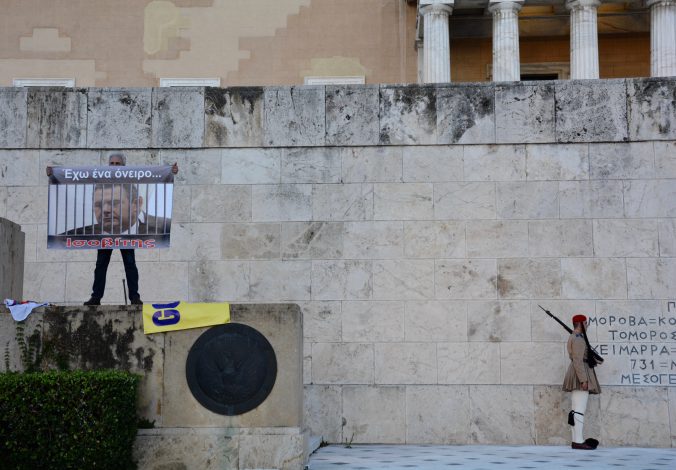By Andie Ayala and Chiara Ficarelli
MYTILENE, Greece –– As flames engulfed the Moria migrant camp last week, Iranian migrant Arash Hampay sat quietly a few miles away in the shade of a bus stop in the center of the quaint town of Mytilene.
Next to Hampay was a cardboard sign that read, “Hunger Strike for Freedom: Day 14. We came to Europe for protection, but Europe rejects people and puts us in jail. Refugees are not criminals.”
Friends called Hampay’s phone to offer regular updates on events unfolding at the inflamed camp. Hampay said he found no happiness in the destruction, vowing to continue his nonviolent, two-week-old protest. He sought the release from Moria of his brother, Amir.
Another activist on the square, Runbir Serkepkani, provided a rough translation of Hampay’s comments: “I have committed myself to reach . . . freedom of [my] brother and the others who are detained. And I am going to continue until they release them or I will die.”
To date, officials have been unmoved by the hunger strike.
Although more than 1 million migrants have passed through the island of Lesbos over the last two years, daily life continues at a leisurely pace. As Moria burned, university students smoked in rooftop bars, elderly couples greeted each other on the street and fishing boats docked on the harbor.
Migrants from the Middle East and Africa sat in cafés and roamed about among the other residents, but there was an important distinction: Officially, they were denied the right to leave for the mainland.
Mehdi Medo, a migrant from Morocco who sat with Hampay, said he had been living in Moria camp for longer than a year.
“You have two worlds here” on Lebos, Medo said. “Refugees who sit here waiting for I-don’t-know-what, and people partying at night,
“It’s a beautiful island, but for the refugees it is a prison.”
